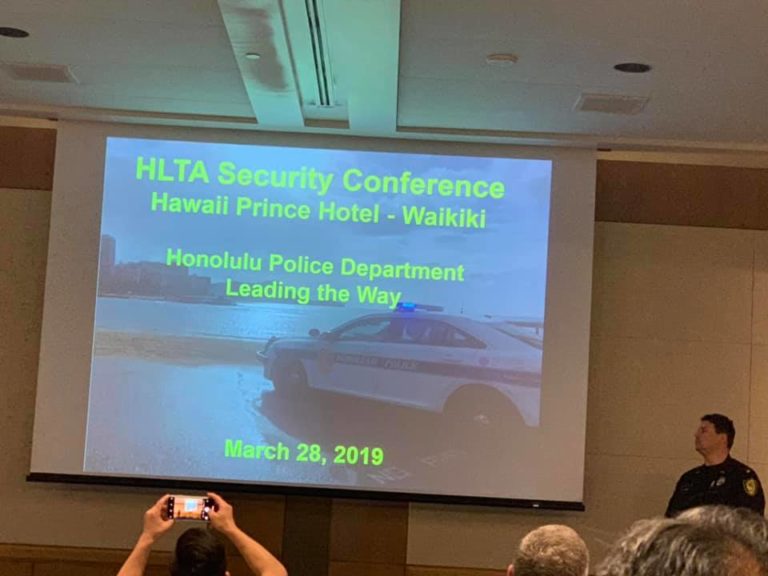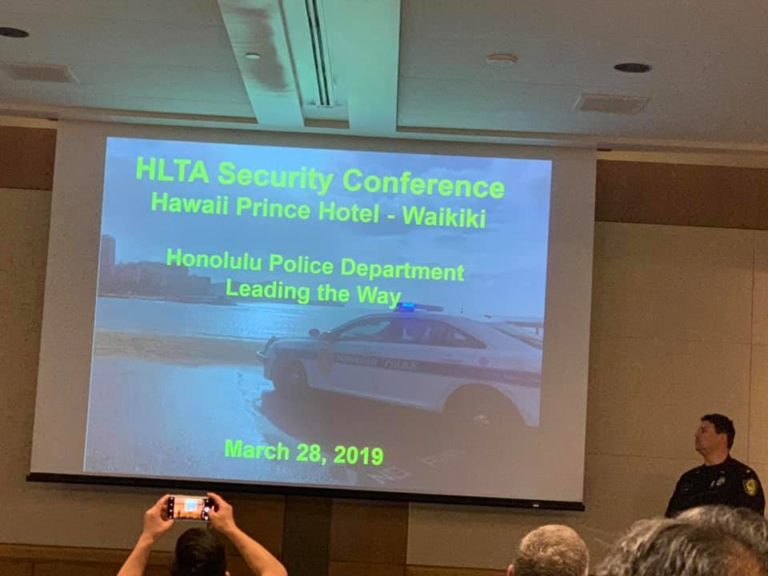The perception is that crime is out of control and rampant in Waikiki. We want to make Waikiki unwelcome and uncomfortable for homeless people.
Crime is not out of control, according to Susan Ballard, Chief Honolulu Police Department.”Waikiki is a safe location for visitors and residents.”
However, the police chief together with Jerry Dolak, president of the Hawaii Hotel Visitors Industry Security Association wants to make sure Waikiki is an unwelcoming and uncomfortable place for the homeless to hang out.
Today the Hawaii Lodging and Tourism Association Security Conference at the Hawaii Prince Hotel in Honolulu brought security experts and leaders of the Waikiki hotel business together.
“Our Competitive edge is safety and security. One incident can change this,” said Mufi Hannemann, Hawaii Lodging & Tourism Association, President & CEO.
The Honolulu Police Department is training officers in communication, conflict resolution, and re-de-escalation. Crisis intervention training (CIT) of the Honolulu Police Department (HPD) officers is to identify individuals in crisis or living with mental disabilities, like many within the homeless community.
The HPD emphasizes building relationships with the community and businesses. They encourage officers to get out of their cars and talk to the community and businesses to facilitate open communication and relationships, this can reduce crimes.
There are groups, not gangs in Waikiki. There is no organized crime, however, there are delinquent juvenile groups from other parts of Oahu.
Most of the discussion this morning was about the homeless problem. Lack of mental health care, the attractiveness to receive handouts the State of Hawaii doesn’t have but most homeless people on the Island of Oahu love is in Waikiki. Tourists do not want to see them, but many feel sorry, but businesses see them as a pest.
GOT NEWS? click here
Google News, Bing News, Yahoo News, 200+ publications
Bob Finley, chair of the Waikiki Neighborhood Board felt the hotels are trespassing “them” and now “they” are on our doorstep at residential condominiums buildings.
Police officers explained how a homeless person could effectively have trespassed, so HPT could arrest such a violator. A member of the audience suggested for the courts to trespass any homeless convicted of such a crime to be no longer allowed in Waikiki altogether. This would slowly clean and isolate the 2-mile long tourist center from those that have no home to go home to.
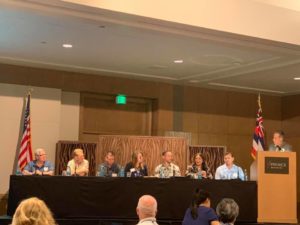
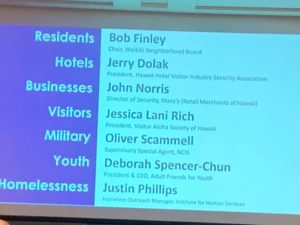
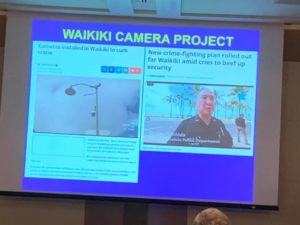
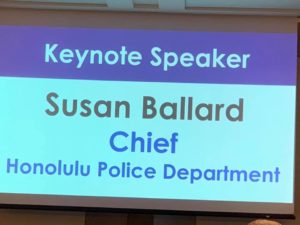

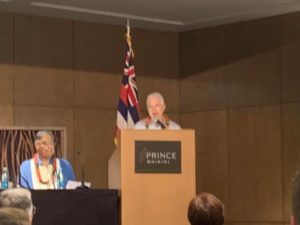
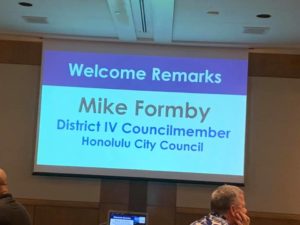
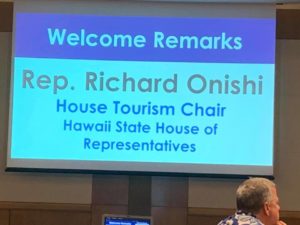
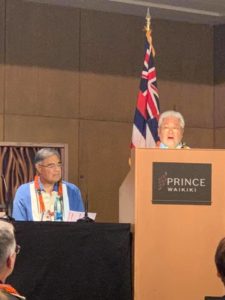
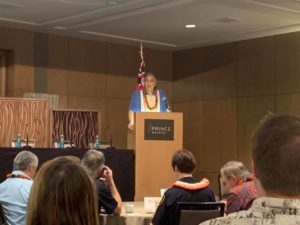
Justin Philipps, the Homeless Outreach Manager of the Institute for Human Services explained the success of a program to provide transportation for homeless people to leave the State. He explained the homeless person has to pay half of the airline ticket, and we provide the other half.
Jessica Lani Rich, president, Visitor Aloha Society documented two cases where homeless with mental conditions attack tourists, in one case almost killed a visitor who came to attend a wedding and instead ended up in a hospital and is now disabled for the rest of her life.
“Tourism is everyone’s business in this State, even if you don’t live in Waikiki or work directly in this business.”, said Juergen Steinmetz, a long time resident of Hawaii and CEO of the eTN Corporation. “Chasing homeless people from one street to another, not forcing seriously mentally ill people to get treatment is putting our economy and our visitors at risk.
“The State has to find the money needed to help a homeless person and provide a chance to enter society. Tourism stakeholders must push legislators to provide the money and methods to help resolve this issue once and for all. The tourist industry should use its power and profits to push the State to act effectively. Someone has to take ownership of the problem, and it cannot be only well-meaning charities, churches, and other nonprofit organizations.”

